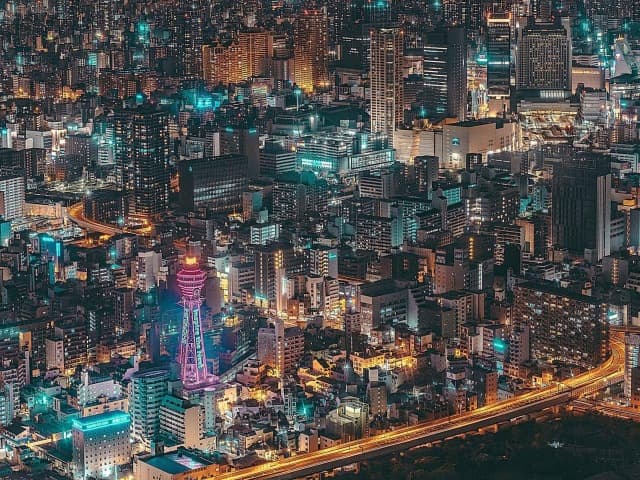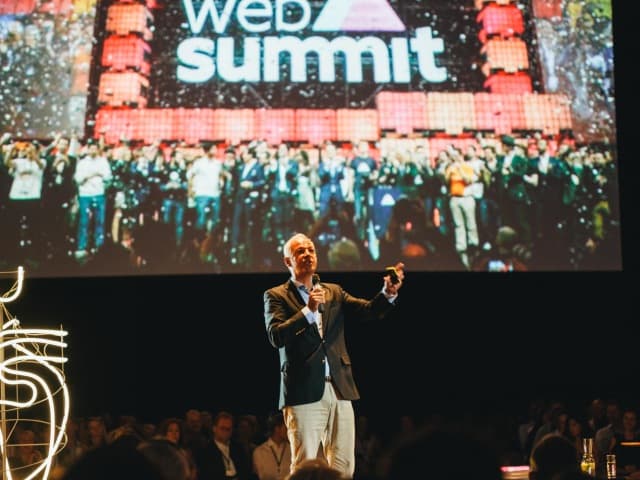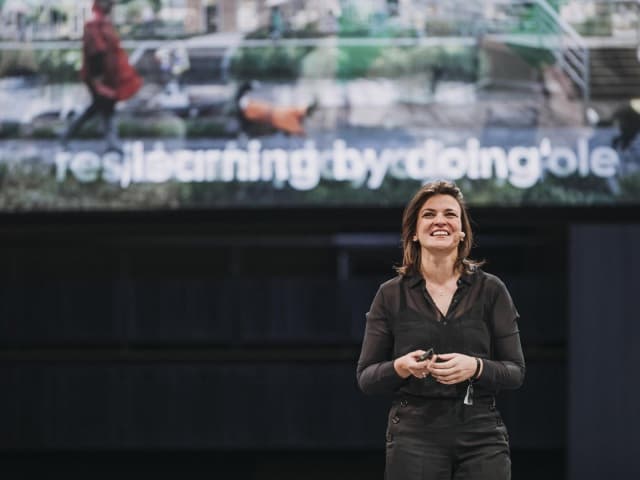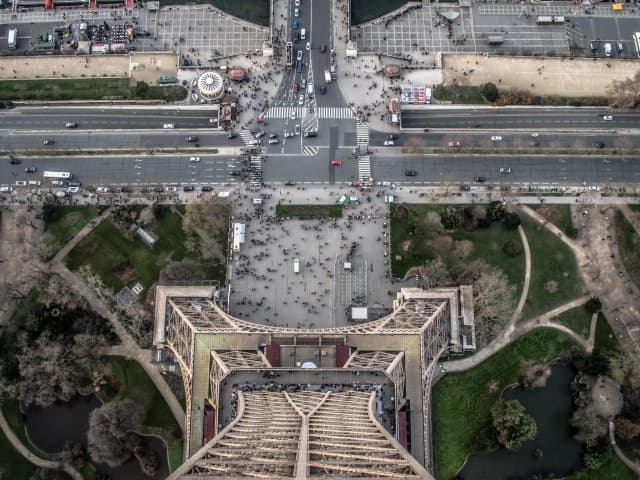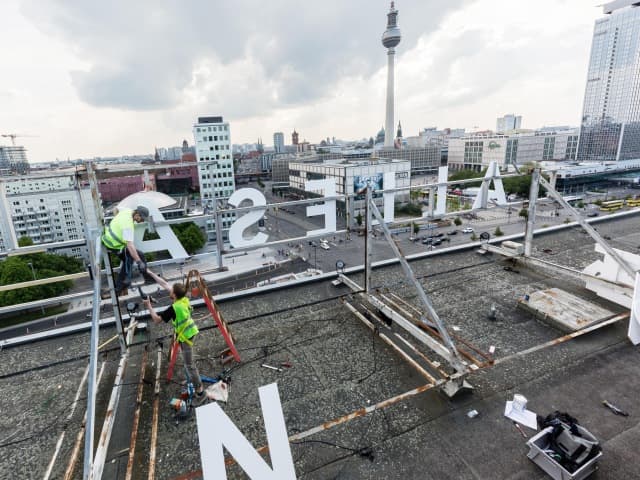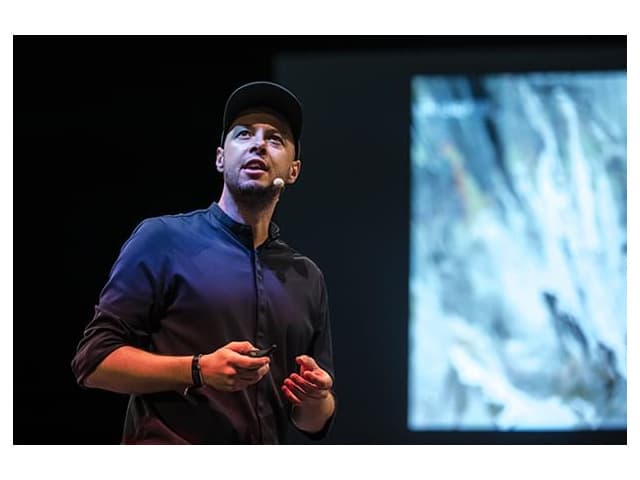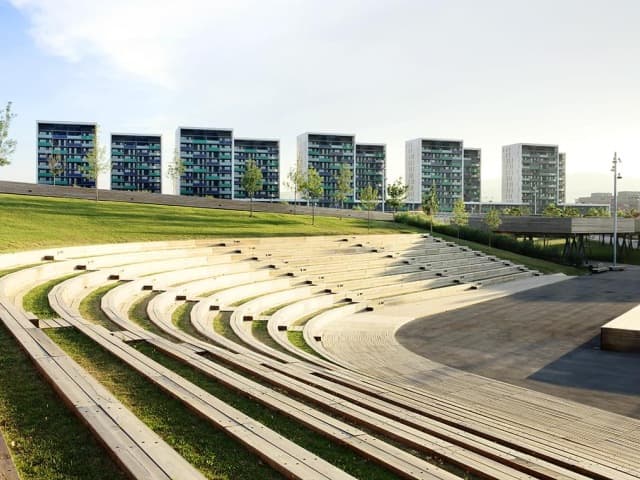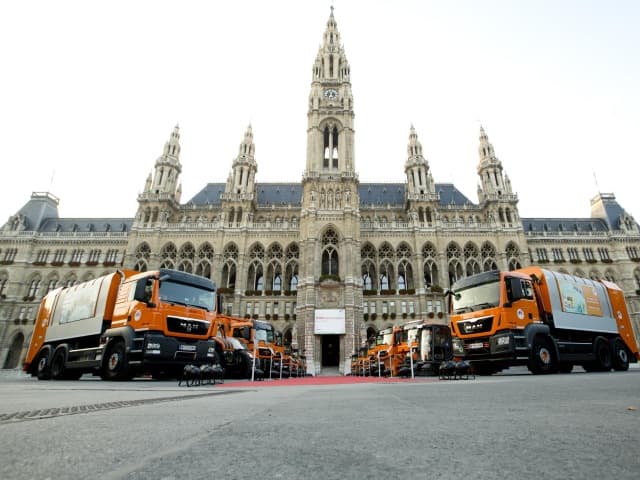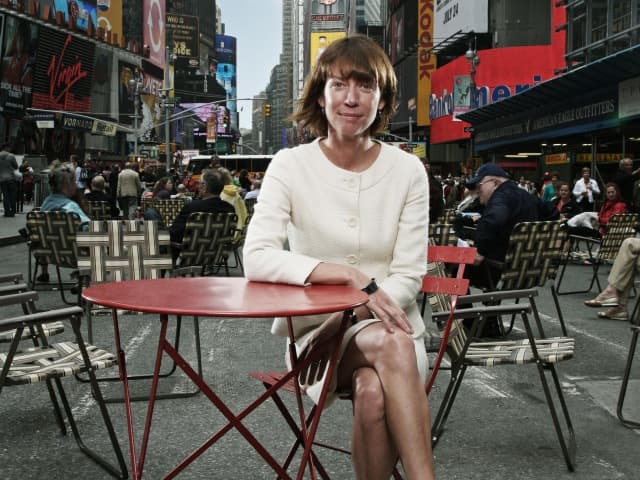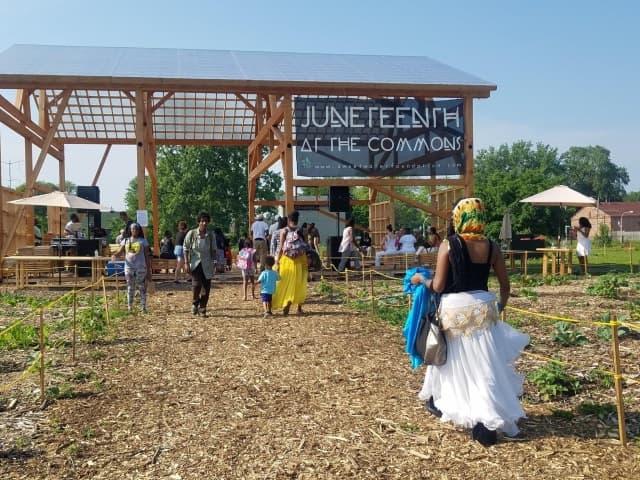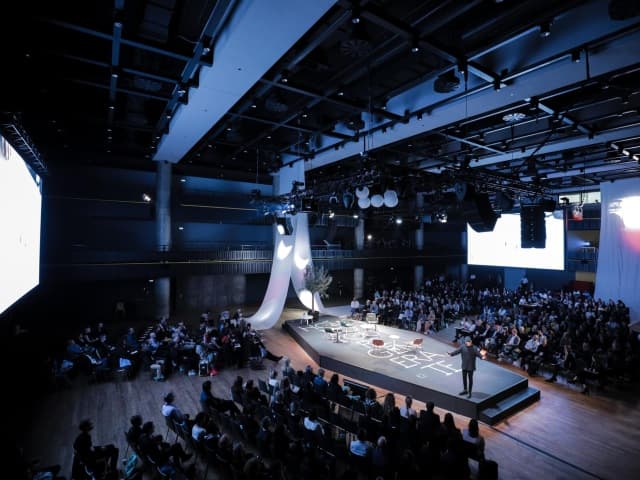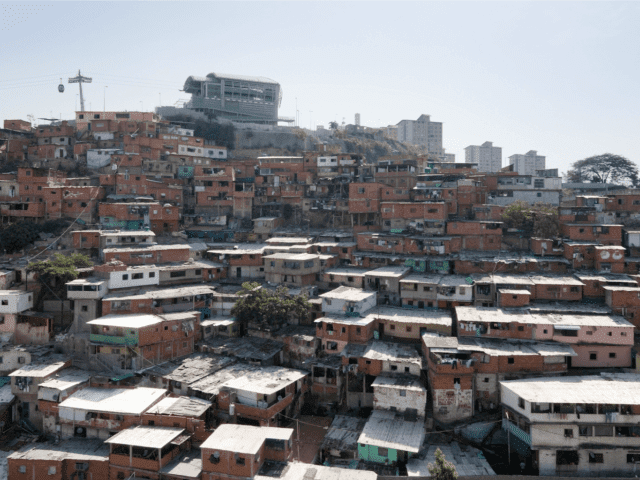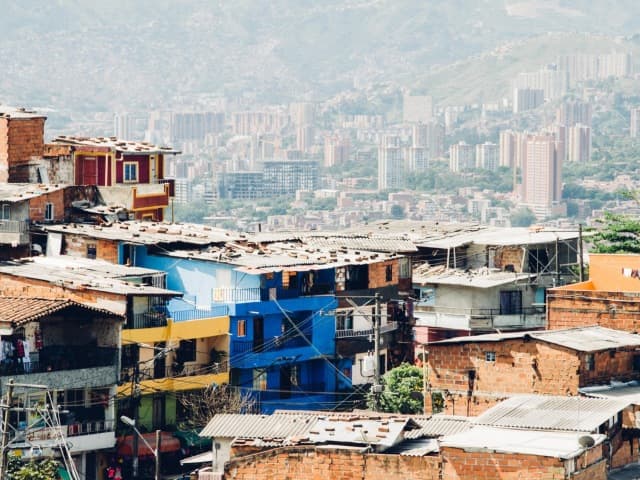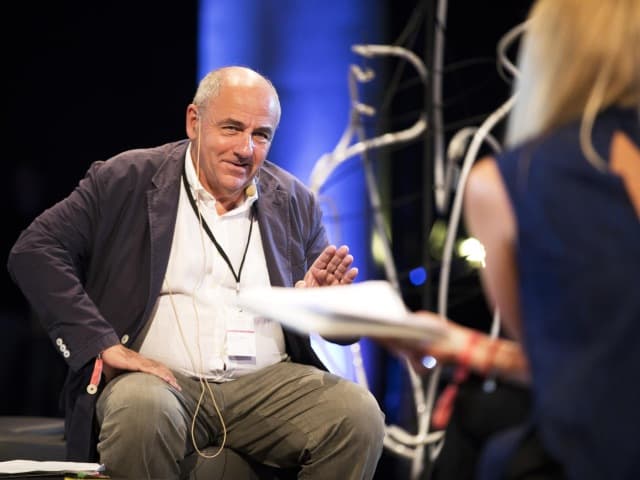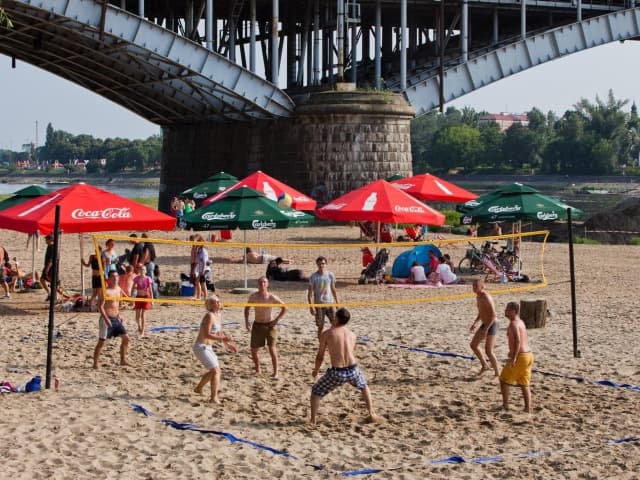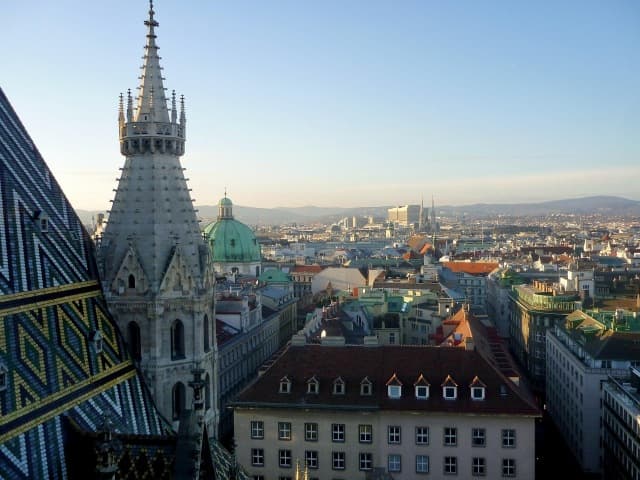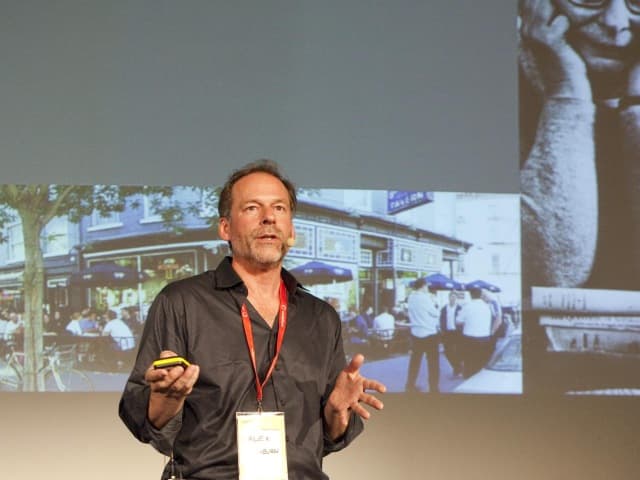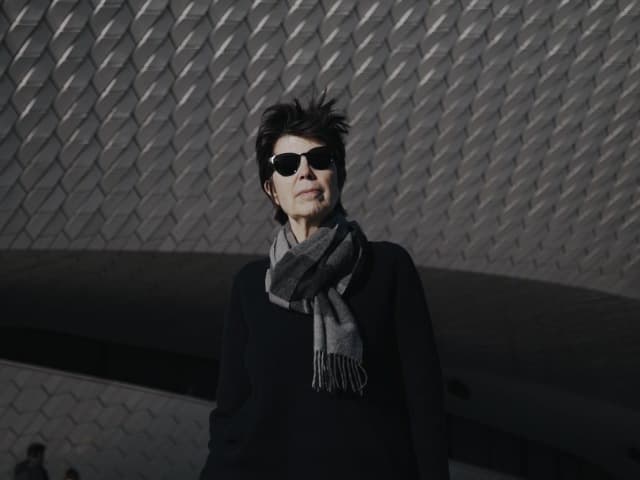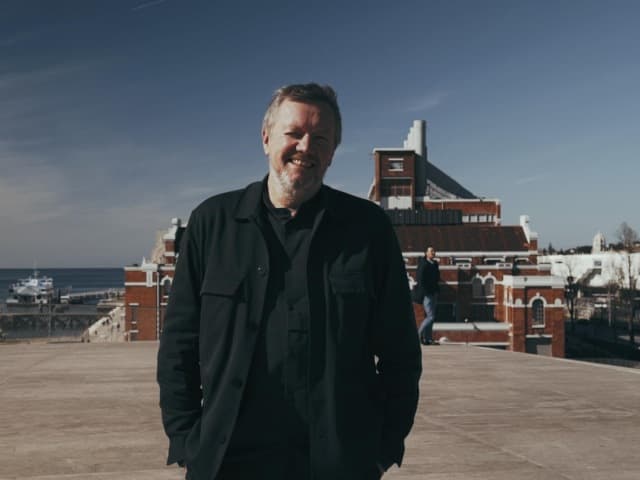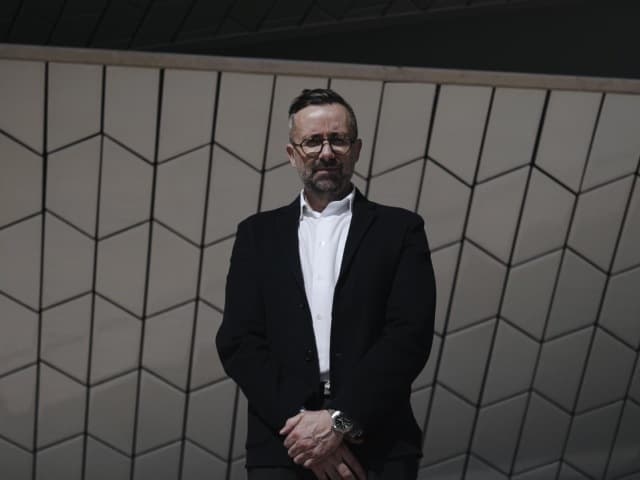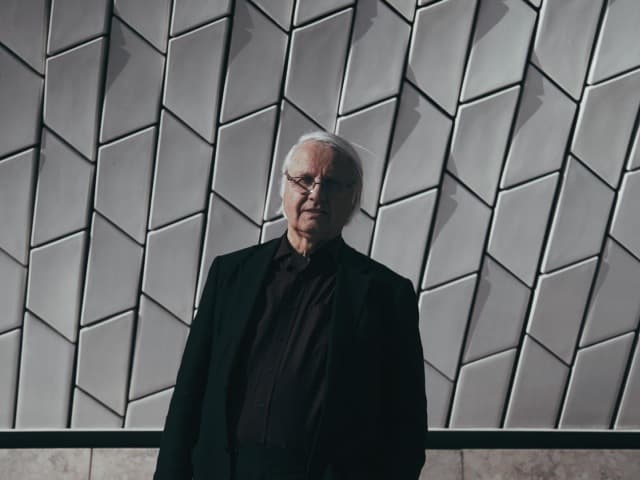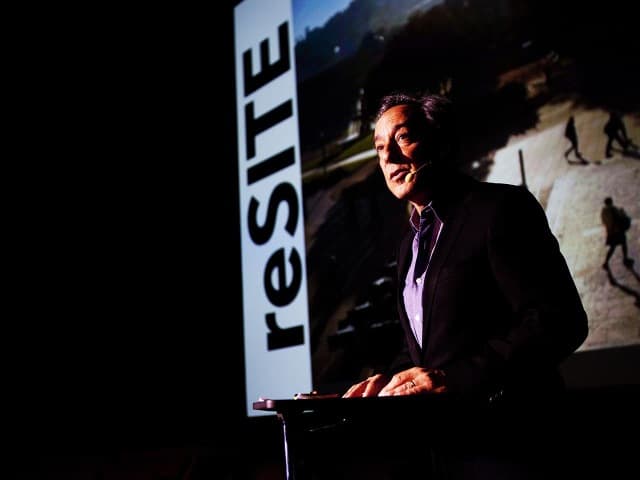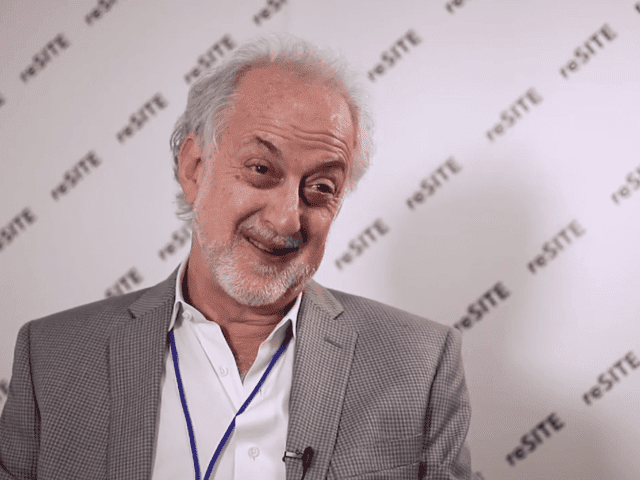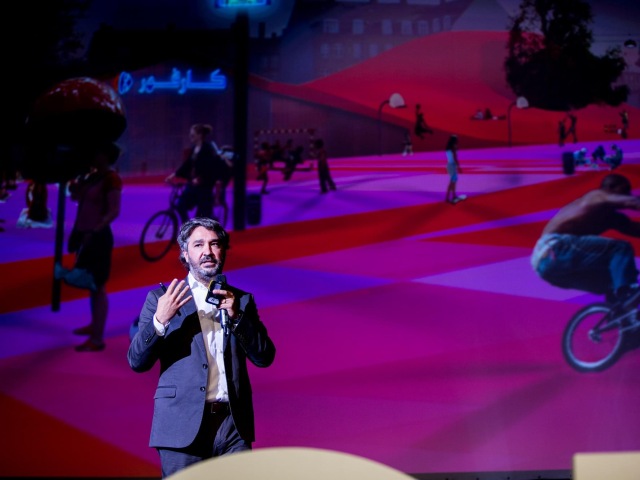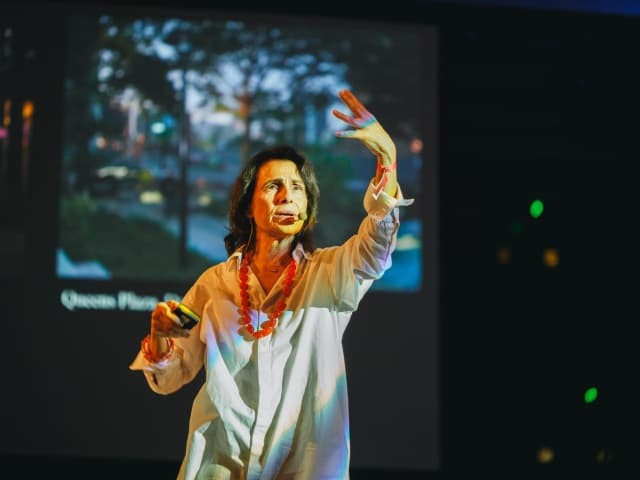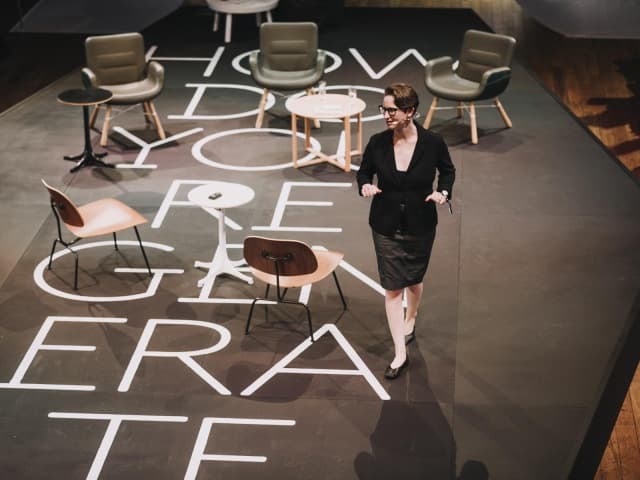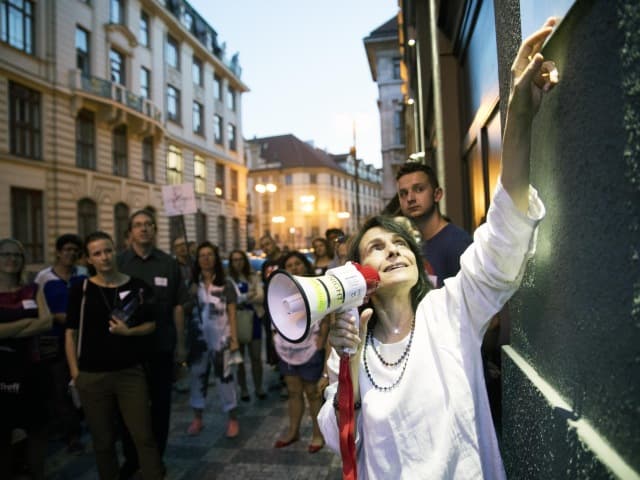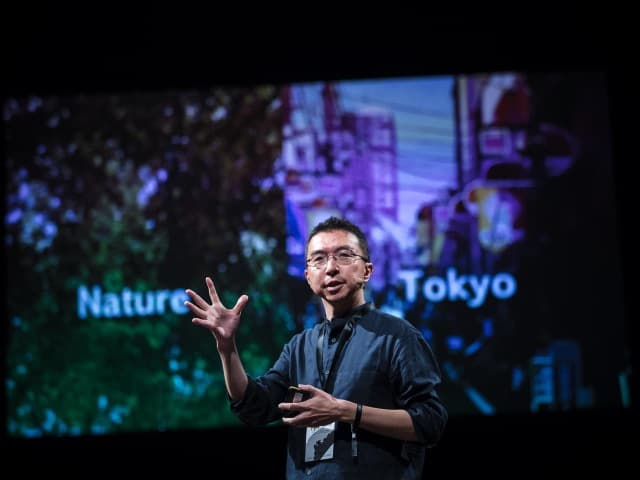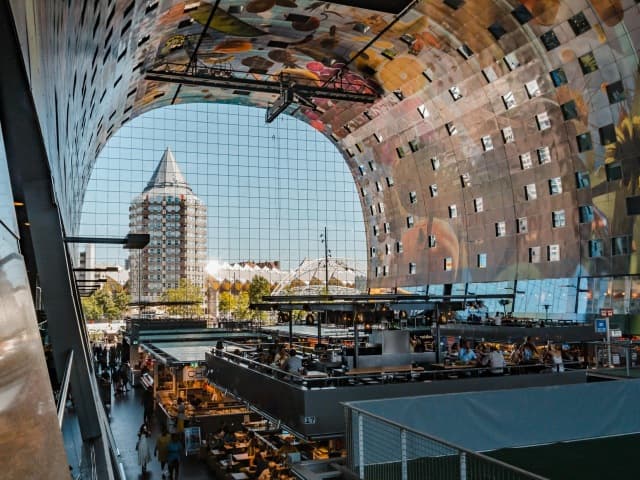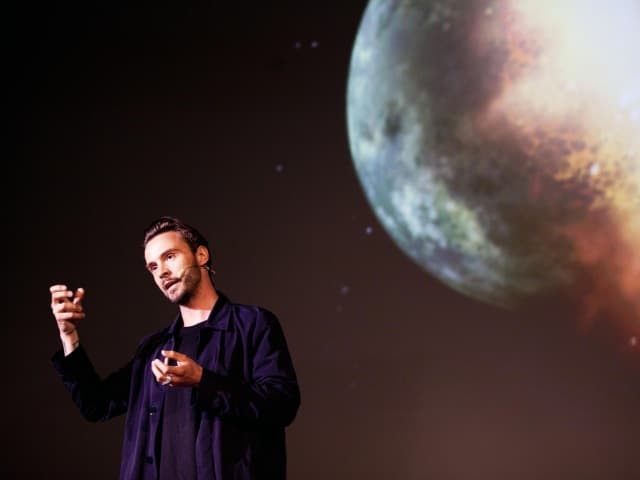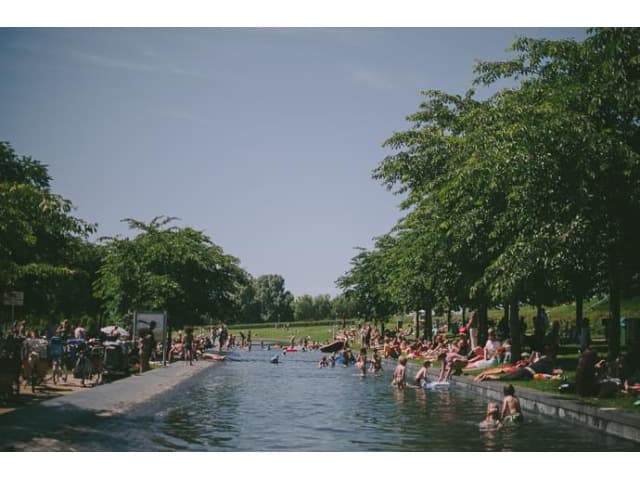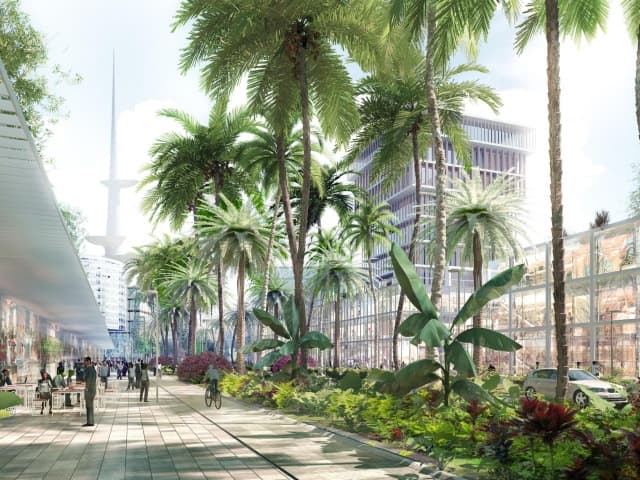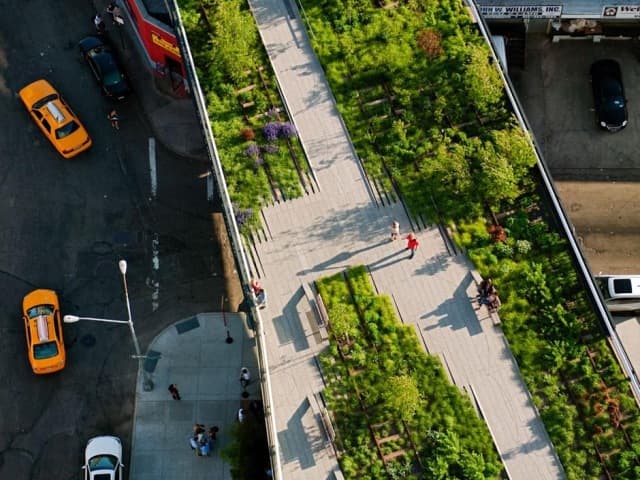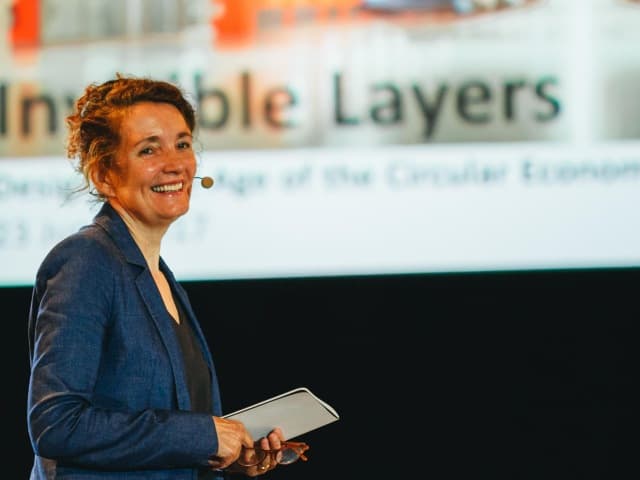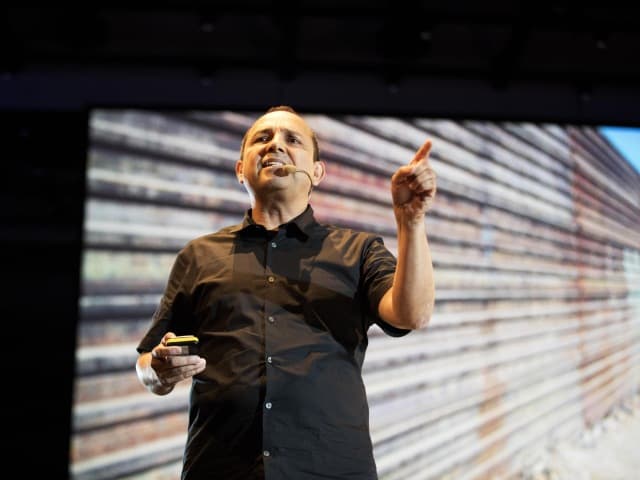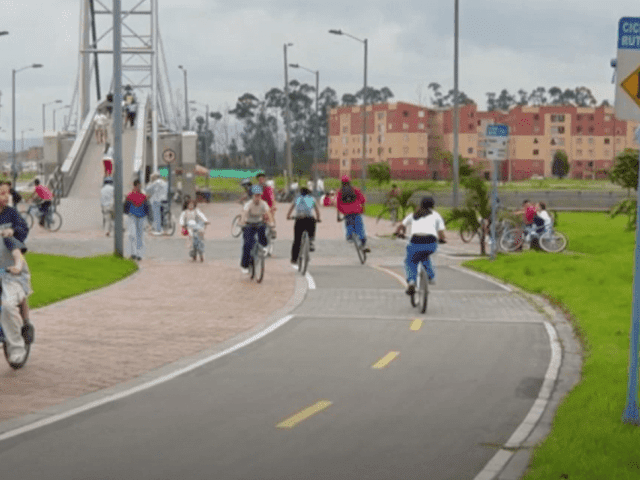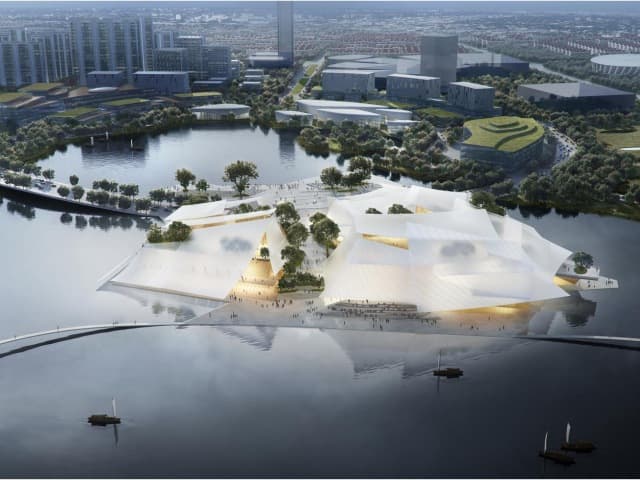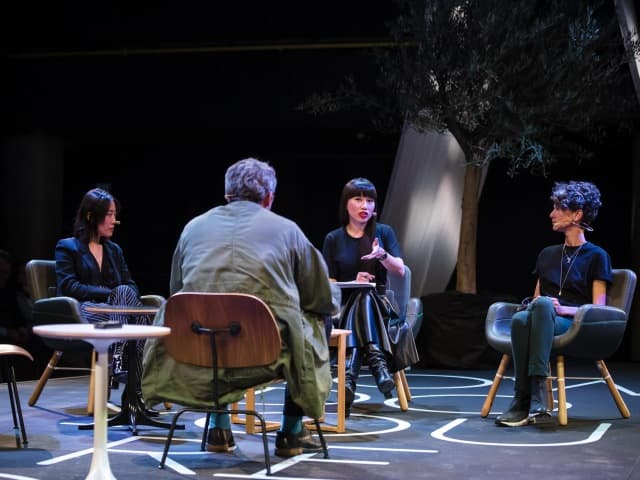Highlighted reSITE Talks of the Week
Adam Greenfield on the Dangers of Smart Cities
Adam Greenfield challenges the popular concept of “smart cities”, warning against the danger it posses of strictly central planning.
How Investing in Infrastructure Revitalized Lisbon
Executive Director of Invest Lisboa Rui Ramos-Pinto Coelho describes the rapid turn around of Lisbon from a poor city into a center of tourism, real estate investments, and entrepreneurship.
Marianthi Tatari on Building the World's Smartest City
Associate Director and Senior Architect and UNStudio Marianthi Tatari believes that technology can play a role in creating more sustainable cities and applies an optimistic approach to its role in our public spaces in lieu of the growing controversies.
Nicolas Buchoud on Embracing the Complexity of our Future Cities
Nicolas Buchoud, cofounder of Renaissance URBaiNe, discusses the modern complexities of city design and finding smart solutions to problems faced by cities today. Buchoud believes we should use the interconnectedness of modern cities to improve urban design to address issues of sustainability, energy, governance, and metropolitan functions.
Talks on Sustainable Cities
Leona Lynen on the Collaborative Regeneration of Haus der Statistik
Haus der Statistik is a prototypical concept for turning an unoccupied former administrative complex into mixed-use, affordable housing in the heart of Berlin. It is raising the bar for how we regenerate neighborhoods in ways that are equitable, sustainable and accessible to the local community.
Chris Precht on Connecting Architecture and Agriculture
Chris Precht, Studio Precht, believes that architecture has always been driven by fictional stories that subsequently have had a detrimental effect on the natural environment. He imagines a world where cities are designed to give back space to nature and reconnect our lives back to our sources of vitality.
Enric Batlle on Building Biodiversity into Urban Infrastructure
Enric Battle, architect and partner at Battle i Roig discusses the integration of biodiversity and infrastructure in urban spaces by looking to biodiversity, connectivity, and productivity to shape urban green spaces.
Martina Ableidinger on How Vienna Made Peace with its Waste
Martina Ableidinger, the head of Waste Prevention & External Affairs in Vienna, lectures at reSITE about the best practices that have made Vienna the most livable city. Waste prevention, recycling, citizen engagement, and creating renewable energy from waste greatly increase the quality of life in Vienna.
Janette Sadik-Khan on the Value of Our Streets + PlaNYC
Janette Sadik-Khan, former Commissioner of the Department of Transportation of New York City, discusses programs implemented in her time in the department and the positive changes these have made. She especially focused on safety and community opinion in her policies, and presents how they made safety programs appeal to people and how much safer she made the streets for pedestrians, cyclists, and drivers.
Talks on Designing Equitable Cities
There Grows the Neighborhood with Emmanuel Pratt
MacArthur Fellow and co-founder of the SweetWater Foundation, Emmanuel Pratt discusses the deep-rooted inequalities of Chicago's western and southern neighborhoods and how SWFs model of urban regeneration integrates sustainable and circular community development.
Ravi Naidoo on Creating a Better World Through Creativity
Ravi Naidoo, the founder of the South African "think-tank, do-tank"- Design Indaba - brings about the idea of a better world through creativity with the fundamental belief that design has the power to enhance democracy, elevate cultural identity, improve the quality of life, and act in the service of people.
Alfredo Brillembourg on How We Can Tackle Urban Poverty
Alfredo Brillembourg, founding partner of Urban-Think Tank in Zurich, discusses incomplete urbanization and service deprivation in poor city areas and what can be done to tackle urban poverty.
Enrique Peñalosa on Why Equality in Cities Begins with Sidewalks
In order to create equitable urban spaces, citizens ability to move freely and safely throughout the city is paramount. Enrique Peñalosa, the former Mayor of Bogota, Colombia discusses the importance of learning from the disastrous mistakes of 20th-century urbanization.
Talks from Global Cities
Jean-Louis Missika on Redefining Urbanism in Paris
Jean-Louis Missika, Deputy Mayor of Paris, participates in a discussion on his projects to reinvent Paris through various initiatives and chagnes. He believes that public space is the future, and is shifting towards increasing and improving this space.
How Investing in Infrastructure Revitalized Lisbon
Executive Director of Invest Lisboa Rui Ramos-Pinto Coelho describes the rapid turn around of Lisbon from a poor city into a center of tourism, real estate investments, and entrepreneurship.
Marlena Happach on Copenhagenizing Warsaw
Marlena Happach, a Chief Architect for the city of Warsaw, discusses current issues facing Warsaw in regards to city planning and livability. She references expensive and dificult public transportation and lack of high quality public spaces as two things she wants to address, using Copenhagen as a model.
Facilitating Inclusion Amid Growing Diversity in Vienna with Ursula Struppe
Ursula Struppe, the head of the municipal department of Integration and Diversity in Vienna, discusses her work and the needs of the community she serves. Her department works for asylum seekers and migrants to increase social cohesion and mutual understanding in the city.
The History of Urban Design and the Future of Sustainability in New York
Alexandros Washburn, former Chief Urban Designer of New York City, lectures for a reSITE 2013 conference on three main figures who shaped urban design in New York City. He gives examples of urban resilience in the face of climate change and the need for sustainability in all parts of city living, especially architecture and maintaining the livability of cities.
Talks on Architecture's 4th Dimension: Sound
Sound is Always There with Elizabeth Diller
Elizabeth Diller, founding partner of Diller Scofidio + Renfro, speaks on the importance of sound in architecture and the evolving role of the architect in an increasingly multidisciplinary world. She contemplates how to design buildings that transcend time and withstand the continuous evolution of the activities and art forms that will exist within them.
The Art of Prepositions with Snøhetta's Kjetil Trædal Thorsen
Kjetil Trædal Thorsen, the founding partner and architect at Snøhetta talks sound, space, and the benefits of a multidisciplinary approach to architecture, going beyond thinking of architecture visually and learning how our other senses interact with the built environment.
Sound as Invisible Architecture | RESONATE
Hear from Meyer Sound and Foster + Partners on how they manipulate and shape spaces through invisible architecture. The creation of spaces that take people into environments that they’ve never experienced comes with the technological advancements in sound engineering.
Pioneering Sound Art with Bernhard Leitner | RESONATE
Viennese artist Bernhard Leitner talks about how he uses sound as a building material to create new worlds, and as a tool of design itself. He has worked for the New York Department of City Planning and researched how three-dimensional movements of sounds shape new architectural spaces, with physical-acoustic analyses of spaces.
Talks on Creating Public Spaces
Michael Kimmelman on Democracy and Public Spaces
In this lecture from New York Times, Michael Kimmelman about politics, public spaces, and how progressive democracies depends on vigorous public debates about public spaces.
Why Public Space Belongs to People with Michael Sorkin
Michael Sorkin is an architectural critic, author, professor, urban planner and advocate for social justice. In this talk with reSITE he discusses designing for equitable cities, saying that planners should focus on creating inclusive cities, especially through the use of public space.
Superkilen and Multicultural Public Spaces with Martin Rein-Cano
Landscape architect Martin Rein-Cano discusses the integration of migrant communities in design for multicultural cities, highlighting his Superkilen park in Copenhagen. By incorporating physical items from local immigrant communities, Rein-Cano sought to develop a built environment directly reflecting the neighborhoods that surround the public park.
Leni Schwendinger on Nighttime Design for the 24-Hour City
Leni Schwendinger, the founder of NightSeeing™ and the International Nighttime Design Initiative, discusses the role of lighting design to create a 24-hour city, aiming to utilize lighting design to activate after-hours urban spaces, where people in public feel safe and included.
Talks on Smart Cities
Marianthi Tatari on Building the World's Smartest City
Associate Director and Senior Architect and UNStudio Marianthi Tatari believes that technology can play a role in creating more sustainable cities and applies an optimistic approach to its role in our public spaces in lieu of the growing controversies.
Bianca Wylie on the Power of the Collective
Bianca Wylie has made waves in the urban design world for speaking out against digital surveillance. She has cast a spotlight on the implications of data mining by private corporations and the commoditization of the data gathered from citizens in public spaces.
Illuminating Cities After Dark with Leni Schwendinger | reSITE Small Talk
Leni Schwendinger discusses the 24-hour city, and the reality of an urbanism that utilizes nighttime hours. Through lighting that makes public spaces both accessible and emit a sense of security, the potential for activities in the urban to span throughout the night can become a reality for a wider portion of the population.
Adam Greenfield on the Dangers of Smart Cities
Adam Greenfield challenges the popular concept of “smart cities”, warning against the danger it posses of strictly central planning.
Talks on Architecture
Sou Fujimoto on Reinventing the Relationship Between Nature & Architecture
Sou Fujimoto, founder of Sou Fujimoto Architects in Tokyo, doesn’t see nature and the built environment as opposing forces, but seeks to integrate and learn from the environment as much as possible throughout the design process. Most notably, Fujimoto was selected to design the 2013 Serpentine Gallery Pavilion in London, and in 2019, as one of the 23 architects to reinvent Paris.
Winy Maas on Why Dreaming About the Future of our Cities is Essential
Urban planner, architect, and co-founder of MVRDV interdisciplinary studio, Winy Mass, is reimagining cities and public spaces. He shares with us many of his innovative projects and his curiosity about how future cities will rethink functional space in the public domain.
Why Architecture is Connected to Everything | reSITE City Talks
Lukas Feireiss founded Studio Lukas Feireiss as an interdisciplinary design firm, working on city development and improving the human environment, espcially in the urban realm. In this short talk, he discusses the importance of interdisciplinary work relating to architecture, referencing his work and his studio's mission in urbanism.
Talks on Landscape Architecture
Landscape is Everything Around You with Kathryn Gustafson
Kathryn Gustafson is a landscape architect and co-founded the landscape architecture firm Gustafson Porter + Bowman, based in London. Gustafson’s projects include Gardens of the Imagination in Terrasson, France, Westergasfabriek in Amsterdam, Diana, Princess of Wales Memorial Fountain in London.
Hiroki Matsuura on Prioritizing People in the Shared Landscape
Landscape architect and MADMA CEO Hiroki Matsuura discusses connecting green spaces in urban planning to make areas more livable and enjoyable for people. He uses three examples of his work in different settings to show how he transforms a shared space to be both functional and beautiful.
Designing the New York High Line as a Shared Landscape with James Corner
James Corner, Founder of James Corner Field Operations, talks the future of landscape architecture beyond parks and waterfronts. He begs the question of how to consider the natural environment at the scale of the urban, and in the interests of ‘green’ urban public spaces, how to cater to the interests of diverse public bodies.
Enric Batlle on Building Biodiversity into Urban Infrastructure
Enric Battle, architect and partner at Battle i Roig discusses the integration of biodiversity and infrastructure in urban spaces by looking to biodiversity, connectivity, and productivity to shape urban green spaces.
reSITE Small Talks
Why Public Space Belongs to People with Michael Sorkin
Michael Sorkin is an architectural critic, author, professor, urban planner and advocate for social justice. In this talk with reSITE he discusses designing for equitable cities, saying that planners should focus on creating inclusive cities, especially through the use of public space.
How to Design Architecture for People with Caroline Bos | reSITE City Talks
Caroline Bos is a co-founder of UNStudio based out of Amsterdam. She talks with reSITE about resilient design and her belief is that architecture is not about creating something perfect, but something inspired and designed for people to be in safely.
How Border Zones Became a Physicalization of Fear with Teddy Cruz
Teddy Cruz, professor of Public Culture and Urbanism at UC San Diego and co-founder of Estudio Teddy Cruz, discusses the potential he sees in border zone communities. It is not simply about constructing new buildings, but to creating positive change by reorganizing the existing socioeconomic relations and their spatial aspects.
